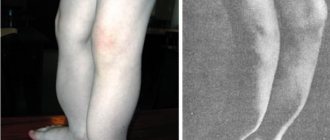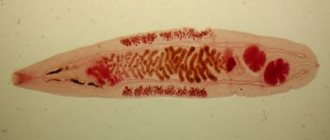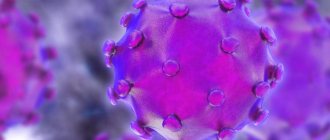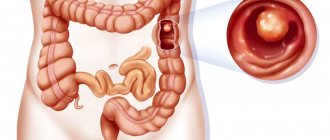Detailed description of the study
One of the mechanisms of immune defense is normally the production of antibodies - immunoglobulins, Ig - which belong to the gamma globulin fraction of blood serum proteins. By their nature, antibodies are glycoproteins - molecules containing carbohydrate and protein - and are divided into five classes: IgA, IgM, IgG, IgE, IgD. They differ in structure and functions, but have a similar structure. When immunoglobulins react to molecules of the body's own, they are called autoantibodies.
Antiphospholipid syndrome (APS) is an autoimmune disease that includes recurrent thrombosis and obstetric pathology. APS is based on the synthesis of antiphospholipid antibodies and their thrombus-stimulating effect. These immunoglobulins come in several types.
Antiphospholipid syndrome is one of the types of acquired thrombophilias. Thrombophilias are conditions in which thrombosis of blood vessels develops. With APS, blood clots occur both in the venous and arterial beds and can recur (recur) in 70-80% of cases in the same place. Deep vein thrombosis is dangerous due to the high risk of developing embolism - blockage - of the pulmonary vessels.
Thrombocytopenia may also occur with antiphospholipid syndrome. Thrombocytopenia is a condition in which the number of platelets in the blood is less than 150 × 109/L. People with thrombocytopenia have an increased risk of bleeding and bleeding. Numerous small purple spots may appear on the skin, which is why the disease is called thrombocytopenic purpura.
There are primary and secondary APS. The first is diagnosed when the reason causing the increase in antiphospholipid antibodies is unknown. The second is isolated when the underlying disease is known, which causes an increase in the formation of these immunoglobulins and is often associated with chronic stimulation of the immune system. The main four groups of reasons for stimulation are:
- Autoimmune diseases;
- Medications;
- Infectious diseases: viral and bacterial, the production of antiphospholipid antibodies is especially common in HIV infection and syphilis;
- Malignant tumors.
A number of drugs increase the concentration of antiphospholipid antibodies, including phenothiazines and other drugs that cause drug-induced lupus: chlorpromazine, hydralazine, phenytoin, procainamide and quiniline.
Antiphospholipid antibodies increase in both viral and bacterial infections. However, with them the increase is transient - short-term - and their appearance should be distinguished from APS.
Obstetric pathology in APS is associated with miscarriage. Miscarriage caused by an increased concentration of antiphospholipid antibodies is possible at any stage, but more often occurs in the second or third trimester. Fetal death is a consequence of thrombus formation in the small vessels of the placenta, due to which the latter ceases to perform its functions and further pregnancy becomes impossible.
A comprehensive study for APS includes the following groups of antiphospholipid antibodies:
AT to cardiolipin.
Cardiolipin is a phospholipid that is part of biological membranes, namely, it is found in the mitochondrial membrane, one of the cell structures where it participates in metabolic processes. In antiphospholipid syndrome, immunoglobulins are produced in response to cardiolipin, so their determination with the appointment of the appropriate analysis is one of the main points in the correct diagnosis.
AT to phospholipids.
These autoantibodies are aimed at damaging the main components of the biological membranes of human cells. These components are phospholipids. Of these molecules, the most antibodies are produced to phosphatidylserine, which is located on the inner surface of platelets and on the membranes of the cells of the inner layer of blood vessels (endothelium). Phosphatidylserine takes an active part in the formation of a blood clot (thrombus), and when antibodies to this molecule are produced, inadequate thrombus formation occurs.
Lupus anticoagulant (LA).
VA is a group of antibodies to phospholipids, which also increase the risk of blood clots. It was first isolated from patients with systemic lupus erythematosus, but is currently included in one of the criteria for defining antiphospholipid syndrome.
Antibodies to beta-2 glycoprotein.
These ATs are one of the main markers of APS. Their identification in cases of suspected APS is recommended by Russian and foreign clinical guidelines. Beta-2 glycoprotein immunoglobulins are often associated with secondary antiphospholipid syndrome secondary to systemic lupus erythematosus.
Antibodies to prothrombin.
Prothrombin is a protein involved in blood clotting processes. Antibodies to it directly contribute to the development of APS symptoms.
This analysis can determine the presence of APS with a high degree of probability, is widely used in clinical practice, is affordable and has no absolute medical contraindications. Venous blood must be donated for testing.
A detailed description of the studies and reference values are presented on the pages with descriptions of individual studies.
What is AFS?
APS is an autoimmune condition when antibodies to phospholipid complexes present in a variety of human organs begin to attack the tissues of their own body, because they perceive them as foreign and, as a result, try to resist an imaginary threat.
Despite the fact that theoretically any system can be affected, most often APS causes thrombosis (both arterial and venous), resulting in the development of such dangerous pathologies as thromboembolism, stroke and heart attack. In addition, the syndrome provokes serious complications during pregnancy.
It should be immediately noted that the production of antibodies to phospholipids itself cannot cause thrombosis. A certain event is necessary that will become a factor triggering the activation of the body’s immune forces. What could it be? For example, pregnancy, injury and stress.
References
- Guyton, A.K., Hall, J. Medical physiology / ed. IN AND. Kobrina. - M.: Logosphere, 2008. - 1296 p.
- Internal diseases in 2 volumes: textbook / ed. ON THE. Mukhina, V.S. Moiseeva, A.I. Martynova, 2010. - 1264 p.
- Secrets of rheumatology. - St. Petersburg: BINOM Publishing House, 1999. - 768 p.
- Reshetnyak, T.M. Antiphospholipid syndrome: diagnosis and clinical manifestations (lecture). Scientific and practical rheumatology, 2014. - No. 1.
- Federal clinical guidelines. Laboratory diagnosis of rheumatic diseases, 2014. - 12 p.
- Makarenko, E.V. Antiphospholipid syndrome. Problems of health and ecology, 2022. - No. 4 (54).
- Miyakis, S., Lockshin, M., Atsumi, T. et al. International consensus statement on an update of the classification criteria for definite antiphospholipid syndrome (APS). J ThrombHaemost, 2006. - Vol. 4(2). - P. 295-306.
Symptoms of antiphospholipid symptom
The doctor may be concerned about episodes in the patient’s past, such as:
- frozen pregnancies for a period of 10 weeks or more (even one such case is a reason for examination for the presence of APS);
- premature birth before 34 weeks, if severe forms of preeclampsia or fetoplacental insufficiency were detected during pregnancy;
- miscarriages (3 or more) in the early stages (up to 10 weeks), if the reasons for this could not be found;
- hypoxia (a condition caused by insufficient oxygen supply) and delayed fetal development;
- premature detachment of a normally located placenta.
Also at risk are women who have previously developed venous or arterial thrombosis during pregnancy, while taking oral contraceptives, or after giving birth.
Antiphospholipid antibodies in the blood - normal or pathological?
Sometimes the level of antiphospholipid antibodies can be elevated in a healthy person. In 12% of people, these antibodies are present in the blood, but they do not develop the disease. The older the person, the higher the levels of pathological immunoglobulins may be. There is also a possibility of a false-positive Wasserman reaction, for which the patient should be prepared. The main thing is not to panic and undergo a comprehensive diagnosis.
Video: APS and other thrombophilias in obstetrics:
Author of the article:
Volkov Dmitry Sergeevich |
Ph.D. surgeon, phlebologist Education: Moscow State Medical and Dental University (1996). In 2003, he received a diploma from the educational and scientific medical center for the administration of the President of the Russian Federation. Our authors
Clinical picture
The most common and specific signs of antiphospholipid syndrome are:
- Arterial and/or venous thrombosis : the deep veins of the lower extremities often affect. As for the arterial bed, intracerebral vessels become targets.
- Obstetric pathology: fetal loss in the second or third trimester of pregnancy, late gestosis, pre- and eclampsia, intrauterine growth retardation.
- Damage to the central nervous system is accompanied by the development of ischemic attacks, strokes, epileptic seizures, chorea, and hearing loss.
- Unreasonable headaches: can manifest as migraine attacks or persistent and untreatable pain.
- Myocardial dysfunction: the patient is diagnosed with a heart attack (in the absence of atherosclerosis), valve damage, ischemic cardiomyopathy, pulmonary or arterial hypertension.
- Thrombocytopenia: platelet count varies in the range of 70-100*109/l.
APS also affects the urinary system (renal failure), liver, gastrointestinal tract, musculoskeletal system (bone necrosis), and skin (hemorrhages and ulcers appear).
Diet
There is no special diet. However, with increased cholesterol and the risk of cardiovascular diseases and blood clots, patients should limit animal fats, carbohydrates, and salt. When treated with Warfarin, the diet should not contain an increased amount of vitamin K , which contains leafy vegetables, green tea, white cabbage, cauliflower, Brussels sprouts, broccoli, wheat bran, pumpkin, avocado, dairy products, spinach, carrots, currants.
Prevention
Prevention includes:
- Control of the disease against which APS develops.
- Timely treatment of infectious complications.
- Impact on risk factors for thrombosis (high cholesterol, hypertension).
- Preparing women suffering from APS before pregnancy. This preparation includes the following treatment measures over 3 months: several sessions of plasmapheresis, taking antiplatelet agents (aspirin) for increased platelet function. If a woman receives warfarin, she is switched to low molecular weight heparins. In women, concomitant diseases are identified and treated, and foci of infection are sanitized. A woman should take vitamins with folic acid (0.8-1 mg per day), and if hyperhomocysteinemia is detected, the dose is increased to 5-6 mg. Taking vitamins B6, B1, B12 is also indicated. If the luteal phase is insufficient, progesterone .
- Women with recurrent miscarriage undergo HLA typing and karyotyping to identify various forms of thrombophilia.
Forecast
The course of this disease and the severity of thrombotic complications cannot be predicted. Unfavorable in terms of mortality are arterial thrombosis , recurrent thrombosis and thrombocytopenia . The prognosis still depends on how timely treatment is started, which the patient must strictly follow (sometimes for life). Mortality is associated with the development of stroke , heart attack , pulmonary hypertension , endocarditis , nephropathy , pulmonary embolism , and gangrene of the extremities .
If we consider catastrophic APS, the prognosis is unfavorable. Death occurs in half of patients and is caused by heart failure , myocardial infarction , respiratory distress syndrome and pulmonary failure . In the presence of antiphospholipid syndrome in patients with lupus erythematosus, the prognosis is also not favorable, since the survival rate of such patients is reduced.
Causes
The etiology of APS is still unknown. At the same time, predisposing factors contributing to an increase in the level of antibodies to phospholipids have been identified. These factors include:
- Bacterial/viral infections ( HIV , hepatitis C , infective endocarditis , malaria , infectious mononucleosis , rheumatoid arthritis , systemic lupus erythematosus , periarteritis , Sjogren's disease , thrombocytopenic autoimmune purpura ).
- Malignant neoplasms.
- Taking medications (hormonal oral contraceptives, psychotropic drugs, etc.).
- Genetic predisposition (in individuals who carry DRw53, DR4, DR7, HLA antigens).
- Age (>65 years for women/>55 years for men).
- Increased body weight (index >30 kg/m2).
- Smoking.
- Congenital thrombophilias .
- Decreased glomerular filtration rate.
- Microalbuminuria.
- Nephritic syndrome.
- Prolonged immobilization/surgery.
It should be taken into account that the presence of antiphospholipid antibodies in primary/secondary APS, as such, does not directly correlate with morbidity.
Why us?
- Ultra-modern equipment. The qualifications of our specialists, expert equipment and modern techniques allow us to timely and accurately diagnose APS.
- Consultation of related specialists. The patient is examined by a council of doctors, this especially applies to pregnant women.
- Comfortable conditions. Our rheumatologists devote maximum time to each client. All services are provided in one building in the center of Moscow, which saves effort and time.
- Innovation. The use of high-tech treatment methods ensures the success of therapy.
Use the full potential of modern medicine to maintain your own health and give life to your child - contact a rheumatologist at the Yauza Clinical Hospital.
You can see prices for services
APS during pregnancy
To prevent the development of dangerous complications, the doctor prescribes treatment from the very beginning of pregnancy.
If there are appropriate indications, the specialist may prescribe anticoagulants (drugs that reduce blood viscosity) and antiplatelet agents (substances that prevent red blood cells and platelets from sticking together).
Additionally, it is recommended to take B vitamins (including folic acid) and magnesium.
If a pregnant woman suffers from APS, she develops progesterone deficiency, so from the very beginning of pregnancy the doctor prescribes progesterone drugs.
Pregnancy management should be carried out under the supervision of an experienced hemostasiologist. Careful monitoring of the condition of the expectant mother and baby is necessary, as well as adjustment of the dosage of drugs based on research results. In the absence of adequate treatment, the likelihood of a successful pregnancy outcome is very low. If therapy is started in a timely manner, the chances increase markedly.
Treatment
After a thorough clinical examination, interpretation of laboratory data and medical history, a rheumatologist at the Yauza Clinical Hospital develops an individual treatment regimen for APS for each patient. Its components may be:
- indirect anticoagulants and antiplatelet agents;
- glucocorticoids;
- immunosuppressants;
- aminocholines;
- selective NSAIDs;
- immunoglobulins;
- complexes of vitamins and microelements.
Extracorporeal hemocorrection in the treatment of antiphospholipid syndrome
To reduce the amount of autoantibodies in the patient’s blood, increase the body’s sensitivity to drug therapy, and reduce the likelihood of developing side effects of drugs, our specialists use an innovative method for treating APS - extracorporeal hemocorrection. The following EG methods are used:
- cryoapheresis;
- cascade plasma filtration;
- immunosorption;
- high-volume plasma exchange;
- extracorporeal pharmacotherapy;
- photopheresis
The use of extracorporeal technologies in the treatment of APS helps to stop the autoimmune process, alleviate the course of the disease, as well as the onset of pregnancy and its favorable gestation in almost 90% of cases.
In addition, the course of hemocorrection in 100% of cases normalizes blood clotting ability, which eliminates the increased risk of thrombosis and thromboembolism characteristic of APS.








